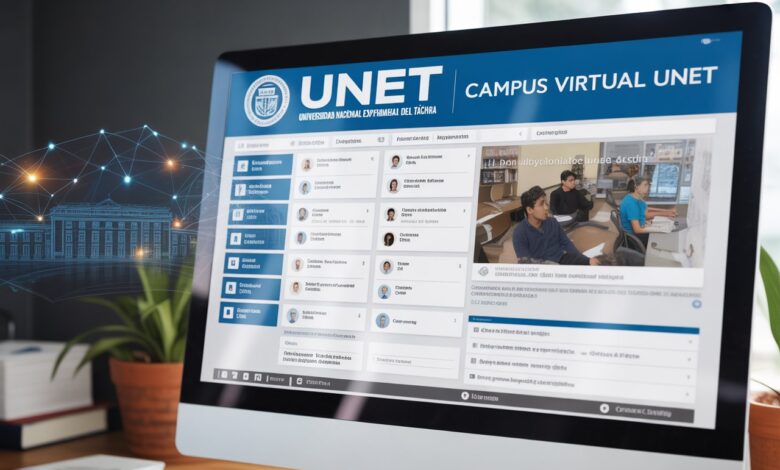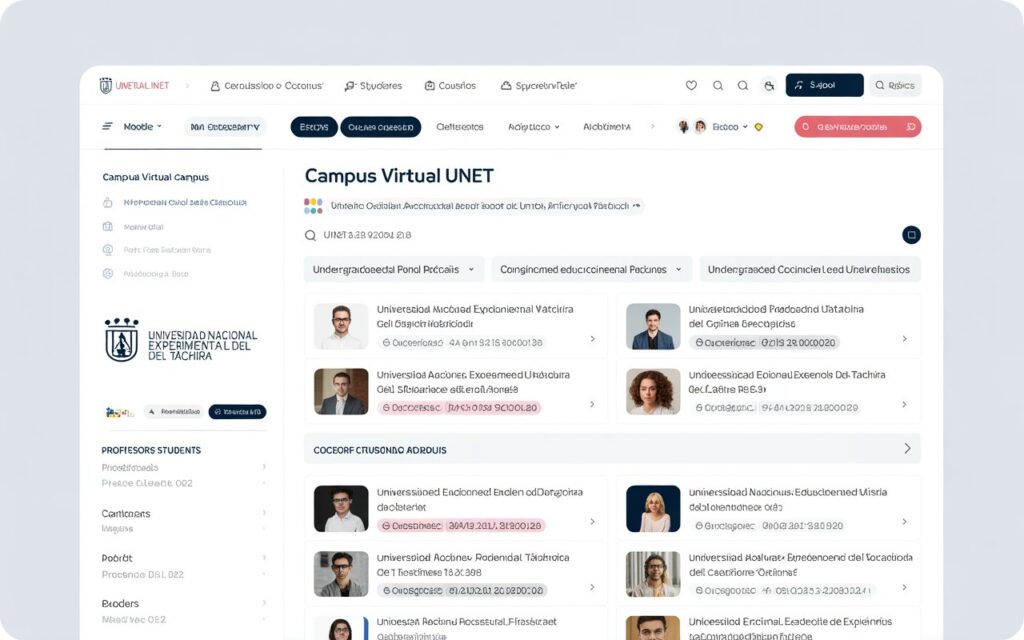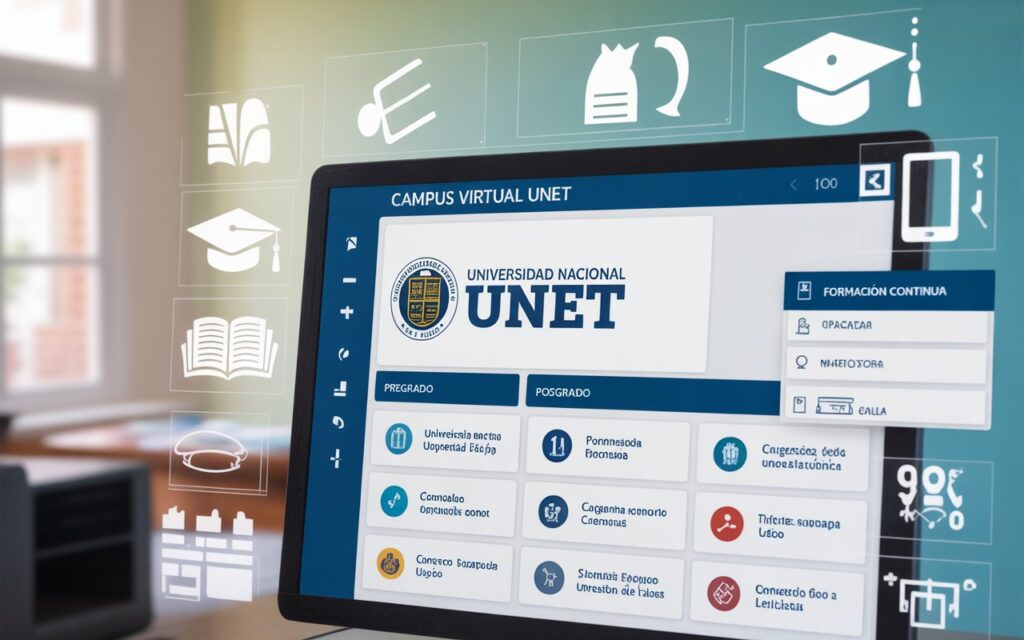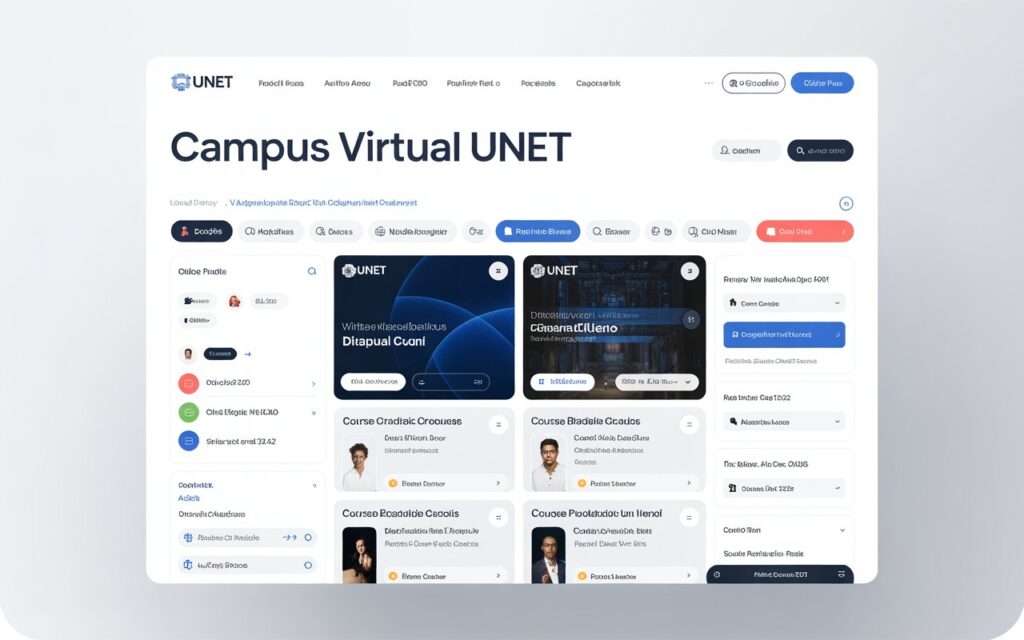Campus Virtual UNET: Learning Made Simple and Connected in 2025

Imagine going to university without leaving your home — attending classes, sharing ideas, and doing projects all from your laptop or phone. That’s what Campus Virtual UNET is all about. It’s the official online learning platform of the Universidad Nacional Experimental del Táchira (UNET), a leading university in Venezuela.
Campus Virtual UNET helps students and teachers stay connected anytime, anywhere. It’s like a digital campus — but instead of walking through buildings, you move through courses, lessons, and discussion rooms online. You can study at your own pace, rewatch classes, and message professors whenever you need help. In 2025, this virtual space has become one of the most practical and easy tools for higher education.
The Purpose Behind Campus Virtual UNET
Campus Virtual UNET was designed to make learning easier and more flexible for everyone. The idea started when universities needed new ways to teach students who couldn’t always attend classes in person. UNET saw the opportunity to create something modern — a digital version of its campus that could support online and blended learning.
Today, it’s more than just an online classroom. It’s a community where students, teachers, and staff share knowledge every day. The system supports lectures, exams, group projects, and even research work. It’s built to give every student equal access to education — no matter where they live. This makes Campus Virtual UNET a powerful step toward inclusive and accessible education in Venezuela and beyond.
How Campus Virtual UNET Works

If you’ve ever used a learning app or website, Campus Virtual UNET will feel familiar. Students log in with their university ID to enter their courses. Each course page is like a small world — you’ll find lessons, assignments, grades, and forums where everyone can discuss ideas.
Professors upload reading materials, videos, and activities. Students complete quizzes, submit homework, and join in group discussions. The platform even sends notifications, so no one misses a deadline. It’s simple, but very effective. Teachers also get tools to track progress and give feedback in real time. This keeps learning organized and personal, which helps students stay motivated.
For example, a student studying engineering can attend a virtual lab through Campus Virtual UNET, while another in humanities can upload essays and get comments directly from their professor. Everything happens inside the same clean, easy-to-use system.
Why Campus Virtual UNET Matters in 2025
The world of education has changed a lot in the last few years. More people are working and studying from home, and universities everywhere are mixing online and in-person learning. In this environment, Campus Virtual UNET stands out as a model for how to do digital education right.
It gives students freedom. You can log in anytime — whether you’re at home, at work, or even traveling. It gives teachers flexibility too, helping them design courses that are interactive and fun. And for universities, it saves time and resources while keeping classes accessible to everyone.
UNET has continued improving the system since its early days, adding new features like video conferencing, mobile access, and cloud storage. By 2025, the platform is smoother and faster than ever before, making online learning feel natural and human again.
The Heart of the System: Connection and Community

One of the best parts of Campus Virtual UNET is how it brings people together. Even though it’s online, students still feel like they’re part of something bigger — a real university community.
Inside the virtual campus, you’ll find discussion boards full of lively debates, study groups helping each other, and professors sharing advice beyond just the lessons. It’s a place where ideas grow and friendships form. In fact, many students say the sense of connection through Campus Virtual UNET is even stronger than in some traditional classrooms.
The platform isn’t just about technology. It’s about people — and how they learn, teach, and support each other in a changing world.
Benefits of Campus Virtual UNET
There are many good things about using Campus Virtual UNET. The first and most important one is comfort. You can study from home or any place that has the internet. You don’t need to spend hours in traffic or rush to class. You just open your laptop or phone, log in, and you’re ready to learn.
Another big benefit is time control. You can learn at your own pace. If you need more time to understand a topic, you can go back and review it again. If you finish early, you can move forward. This makes learning less stressful and more personal. Many students say they feel more confident because they can study when they are calm and ready, not when they are tired or in a hurry.
Teachers also enjoy it. They can share lessons, videos, and tasks in one place. They can see who is doing well and who needs help. This makes teaching more effective and saves a lot of time. Everything stays organized — no more piles of papers or lost homework.
Common Challenges and How UNET Solves Them
Of course, no system is perfect. Some students at first found Campus Virtual UNET a bit hard to use. They missed the feeling of being in a real classroom. Others had trouble with internet speed or devices.
But UNET worked hard to solve these problems. The platform is now simpler, faster, and works on most phones. The university also created help videos and support chats, so students and teachers can get help right away.
Many teachers also started mixing online classes with small in-person meetups. This gave students the best of both worlds — online freedom and real-life connection. In 2025, this mix has become the new normal, and Campus Virtual UNET is a key part of it.
Stories from Students and Teachers
A good way to understand how Campus Virtual UNET helps is to hear real stories. For example, Maria, a civil engineering student, says she can now attend her classes even while helping her family’s business during the day. She studies at night from her phone and still keeps up with her classmates.
Professor Luis, who teaches design, says the platform helps him be more creative. He uploads short videos, designs, and even small quizzes that keep students excited. He says Campus Virtual UNET helped him connect with students in a new way — one that feels more modern and human.
These stories show that learning online doesn’t mean being alone. It means learning in a smarter, more flexible way that fits today’s world.
The Technology Behind Campus Virtual UNET
Behind its friendly look, Campus Virtual UNET has strong technology. It uses secure servers, easy logins, and tools that work well even with low internet speed. The design is light and clear, so pages load fast on phones and computers.
The university keeps updating the system every year. In 2025, they added cloud tools, mobile-friendly dashboards, and better video features. Teachers can now record lectures directly inside the platform, and students can download them for later use.
All this makes Campus Virtual UNET one of the best examples of how technology can support education without making it complicated. It stays simple, yet powerful.
The Future of Campus Virtual UNET

The future looks bright. UNET plans to make the virtual campus even more connected and creative. There are plans for virtual reality classrooms, more interactive lessons, and advanced analytics that show how each student learns best.
The goal is to make online education feel even more natural and personal. In the next few years, Campus Virtual UNET may even connect with other universities, allowing students to take part in joint programs across borders.
Education is changing fast, and Campus Virtual UNET is leading the way in Latin America. It is helping thousands of students learn better, faster, and in a way that fits their lives.
Conclusion
Campus Virtual UNET shows that learning can be simple, flexible, and fun. It gives students the chance to grow without limits, no matter where they are. Teachers enjoy it because it helps them reach every student with ease.
In 2025, this digital campus is not just a tool — it’s a bridge that connects people through knowledge. It proves that technology can make education warmer, not colder. Campus Virtual UNET is more than a platform; it’s the future of learning, happening right now.



